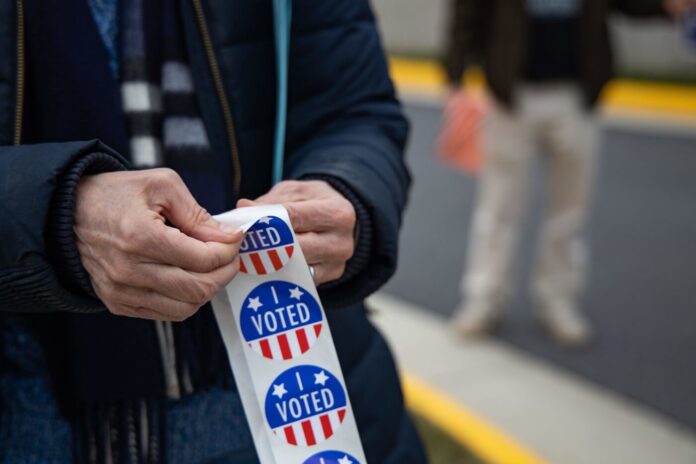How exactly would Wile E. Coyote or SpongeBob SquarePants represent their 7th District constituents in Congress if they had garnered enough write-in votes to best the official candidates? Those were just a two of the write-in choices made by voters in the recent midterm elections.
The Virginia Department of Elections received almost 6,000 write-in votes for congressional seats, along with write-in votes for local seats. Election results will be certified on Dec. 5. The two districts which received the most congressional write-in votes were the 11th and 7th districts, with 852 and 647 write-in votes, respectively. The 1st District had the least write-in votes with just under 300.
Capital News Service filed 12 government records requests to review the write-in responses in the 11th and 7th districts. Half of the localities provided the information free of charge. Greene County and Fredericksburg City required payments of $50 and $100, respectively, to fulfill the request. Capital News Service declined to pay the fees. The votes were available for viewing in person, according to representatives with Fairfax City, and Fairfax and Stafford counties. Prince William County denied the request and cited state code.
“It’s a bit of a protest vote,” said Amanda Wintersieck, about why people chose not to vote for candidates officially on the ballot. Wintersieck is an associate professor of political science at Virginia Commonwealth University, whose research focuses on political behavior and communication.
“In most election years, the top two individuals who get write-in votes are Mickey Mouse and Santa Claus,” she said.
Minnie and Mickey Mouse were both nominated this year. However, write-in contenders skewed more to the dark side this election, including Darth Vader, Hellraiser, and Cobra Commander — G.I. Joe’s nemesis. Some Madison County voters threw their support to deceased presidential assassins John Wilkes Booth, who killed Abraham Lincoln, and Lee Harvey Oswald, who killed John F. Kennedy. Former presidents George Washington and John Adams were also voter selections.
Most voters do not write in candidates to be strategic, Wintersieck said, but rather as a way of noting: “I don’t want either of these candidates.”
Other people who write in names genuinely believe their selected candidate should win, she said. Some states have the option to select “none of these candidates” to stop people from putting in fictional characters, and people not running for office, Wintersieck said.
Former 7th District challenger and current state Del. Nick Freitas, R-Culpeper County, was endorsed in Spotsylvania and Culpeper counties. Eric Cantor, who formerly served seven terms in the 7th District, and Dave Brat, who bested Cantor in a primary and served for one term, each received at least one vote.
Some voters wrote in the names of candidates who represented the locality before redistricting. U.S. Rep. Rob Wittman received write-in votes from counties he used to represent before the 1st District was redrawn. This could be due to voter confusion, “brand familiarity” from having the same representative for years, or to make a statement against redistricting and the new candidates, Wintersieck said.
Write-in votes did not impact any congressional races. Write-in candidates won local elections where there were not enough candidates to fill seats. Kevin Kelley, a write-in candidate, won a seat on the Stanardsville Town Council, according to Jennifer Lewis-Fowler, director of elections for Greene County. This was the only race that required write-in votes to be tabulated in Greene County.
Isaac Kelley, age 19, became the youngest candidate to win in the town of Timberville, in Rockingham County. He won an uncontested seat on the Town Council after deciding at noon on Election Day to launch his campaign, according to the Daily News-Record. He used a whiteboard to promote his name as a candidate and won by an 18-vote margin, according to DNR.
The U.S. is governed by what Wintersieck said is a gerontocracy — a political system operated by older people.
“It’s really encouraging to see young people running and it’s really encouraging to see young people winning,” Wintersieck said. She encouraged candidates to mentor and train younger people to serve.
Perhaps some voters took “Rock the Vote” too literally. Rockers Bob Dylan, Trent Reznor, Keith Richards and Frank Zappa were all write-in options for the 7th District.
Some voters merely identified what they wanted in a candidate and suggested a representative “that supports Black people” and “with better ideas.”
Other voters put their faith in the power of Batman, Samuel L. Jackson, Nicholas Cage and Hulk Hogan to clean up Congress.
– Darlene Johnson / Capital News Service is a program of Virginia Commonwealth University’s Robertson School of Media and Culture.

